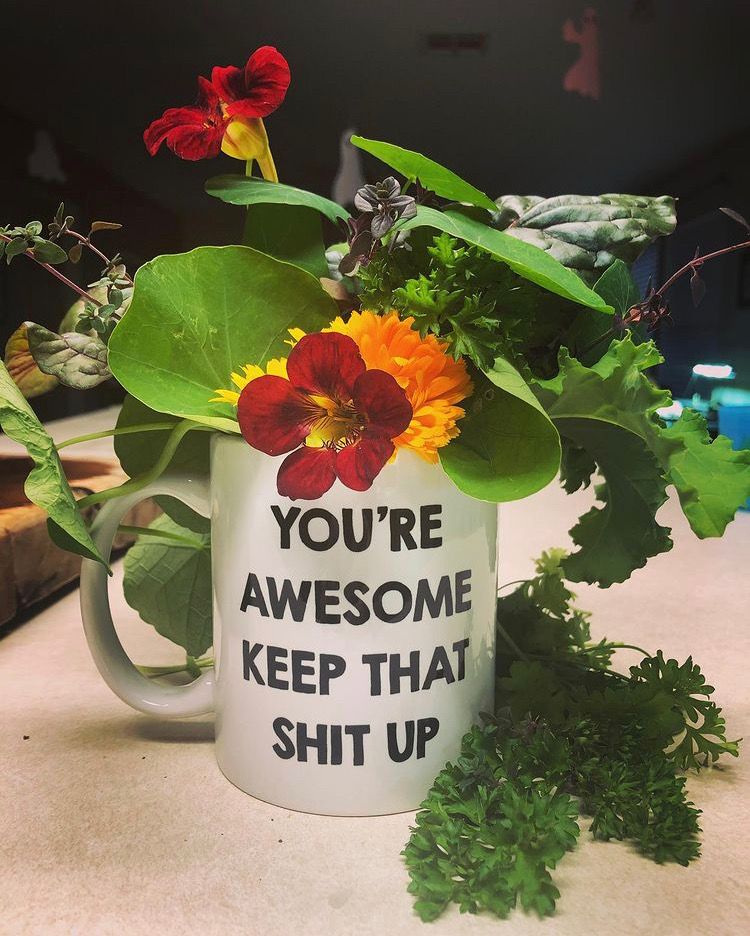Welcome to Garden Space. We're planting seeds for relational living.
FAQ
What issues do you work with?
All things relational! I primarily provide coaching for couples seeking better communication, deeper understanding of one another, emotional intimacy, relational healing after betrayal, and erotic connection. I also enjoy working with individuals navigating sex and dating, wanting to be proactive about their relational strengths and wellness.
How do I know if you're the right coach for me?
First, I'm just going to throw out there that I'm good at this. I'm confident in my academic qualifications as well as my lived experiences, and I'm also a huge fan of continuing education. I love what I get to do for a living. Helping people cultivate a genuine connection to their partner(s) and an authentic, confident sense of self is definitely my jam.
Now, with that out of the way, not every coach is made for every person, so I encourage every potential client to consider if we will be compatible. I encourage you to read on this webpage about me and my approach (including both coaching modalities and my practice as intersectionally allied, affirming, and inclusive). I'm happy to chat with you for a few minutes on the phone to get a feel for the fit. If so, wonderful! If not, I am also happy to see if I can find referrals that could better suit your needs.
If we're already working together, and questions of our compatibility arise, I absolutely encourage you to bring it up. In order to meet your needs best, honest collaboration is key.
What should I expect?
For private coaching, the general structure goes like this: I’m going to start by working with you to gather a whole lot of information about your experiences and relational cycles. For couples, this means hearing each of you out, in full, without the expectation that you have to agree on everything. We’re going to clarify what you want and any relational cycles that are getting in the way of that.
From there we get to work together to dismantle the barriers to find and reinforce the inroads to your goals. We’re going to help you feel empowered and reconnected through insights, accountability, and shared understanding, followed by learning and applying new skills, creating a relational tool kit, and developing a shared vision and resilient relational scaffolding.
In short, you are going to learn how to authentically and effectively relate not only to your partner, but to yourself.
At retreats and workshops, you can expect to get a whole lot of the same information and activities you'll get in your private work, including prompts to explore your personal and relational experiences and expectations, but without the intensity of the undivided attention and with the shared experience of a group dynamic. You’ll be invited (not obligated) to participate in group discussion, and you’ll have break-out mini-sessions with your partner to talk about and practice applying the information.
Regardless of how much they share in the large group sessions, attendees of these group offerings more often than not talk about how helpful it is to hear, see, and be among others who are navigating a lot of the same challenges and goals.
- With all that said about the structure of standard sessions and group retreats and workshops, I'm compelled to add that there are no miracles, crystal balls, or easy buttons. I invite you and your partner to do the work. I cannot do it for you, I cannot make you do it, and I cannot tell you with absolute certainty that doing the work will unequivocally give you the ride off into the sunset, happily ever after that you want.
- Here's what I can tell you about doing the work: You will have the tools and insights to make it work, if you both want it to work. You will come out of our time together with clear insights into who you are, how you got here, and what you want; you won't necessarily want the same things. You will understad your relational ecosystem and your role within it, and the insights, tools, and agency you earned get to be applied in broad domains of your life, whether it's this relationship or others. You will be empowered to cultivate relational joy.
Can you be both my therapist & coach?
Short answer: Nope.
Longer answer: That would violate the rules against dual relationships in my clinical licensure. If you work with me as a coach and we determine that you could benefit from assessment and interventions through a clinical lens, I have a wonderful referral network to get you connected with someone else to meet that need. The same goes for my clinical practice; if a client wants to add coaching to their support network, or even completely forgo the clinical lens and ditch the state regulated model, I will get them coaching referrals. Whatever lane we start in, that's where we stay.
So if you want coaching from me, you're in the right place! If, after looking over the similarities and differences, you decide you'd rather have therapy with me, please click on over to my clinical page.
Approach
My approach is fundamentally relational, collaborative, educational, and transparent, and I offer and invite candor, humor, and genuine understanding.

Neurobiology
Admittedly, I nerd out on this stuff. The work of experts like Steven Porges, Dan Siegel, Robert Sapolsky, Bessel van der Kolk, Nan Wise, Viktor Frankl, Peter Levine, and Bonnie Badenoch teaches us how a basic understanding of neuroscience, implicit memory, and the felt sense can empower us all. Addressing our wiring can be ridiculously hard work, and while we can't just decide or be forced to change into something completely contrary to our authentic identity (the impact of attempts to do so is fundamentally harmful), neuroplasticity does mean we can make incredibly meaningful changes in how we relate to ourselves, our partners, and the world around us.

Parts Work
Twenty years ago, I would've died on the hill of insistence that inner child work was woo-woo and not scientifically relevant. It would have been an early, untimely death. Whether you want to call it inner child, implicit memory, your bottom brain, or your Internal Family System, parts work gives us the scaffolding to understand how our life experiences have shaped who we are and how we show up in our relational dynamics. Parts work is neurobiological work. It's not entirely nature vs nurture; it's a lot of nature shaped by nurture. It's not leaving the past in the past; it's orienting to the map of our existence and understanding our nervous system to make informed, empowered choices.

Sociocultural
We live and breathe in a thick atmosphere of both implicit and explicit family, social, and cultural messages about who we're supposed to be, how we're supposed to be, with whom we're supposed to be, and when we're supposed to be it. Of course, we also inevitably apply these expectations to our loved ones.
Maybe that doesn't sound so bad, right? We are wired for connection and belonging, after all, so our conditioning (social norms and prescribed roles) can serve us well... until it doesn't. Often enough, our conditioning is at odds with what we actually want, who we actually are, and even what we need.

Values-oriented Motivational Interviewing
If we think of the intersection of our experiences and our nervous system as our map, our values are our compass. I teach you how to create the map. You teach me about your compass. We apply your compass to your map. Depending on how old you are, you might remember overhead projectors and the slide sheets that went with them. Each of these approaches, like slide sheets, overlays with the others to create a complete picture. We work together to develop an understanding that will help you to slow down, orient, and decide with intention how you want to show up in this world and invest in relational satisfaction and joy.
Academic training & continuing education
Texas State University: MA, Professional Counseling, 2011
Sexual Health Alliance
Relational Life Institute (RLT)
Multiple Clinical Trainings
Vision
A culture of relational health and wellness rooted in authenticity, respect, pleasure, and intimacy.
Mission
Supporting your relational development through professional insights, candor, and compassionate coaching as well as by honoring, expanding, and honing the strengths you already have.
Let's Talk
The first step to getting the relationship you want is reaching out. Let's find a time where to talk about what's on your mind.

